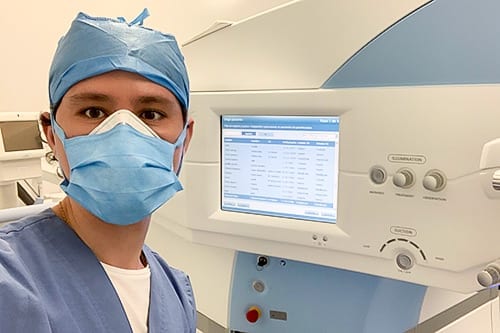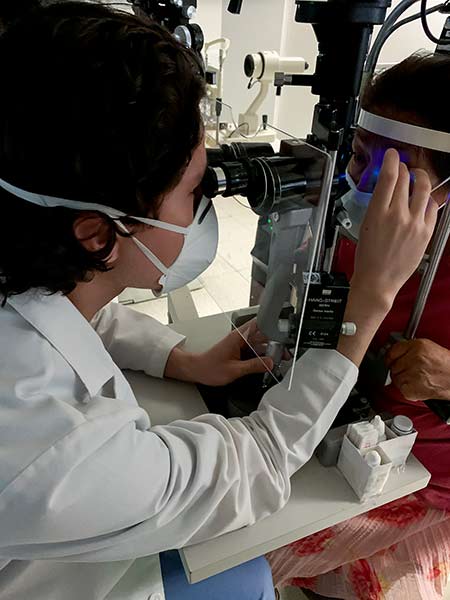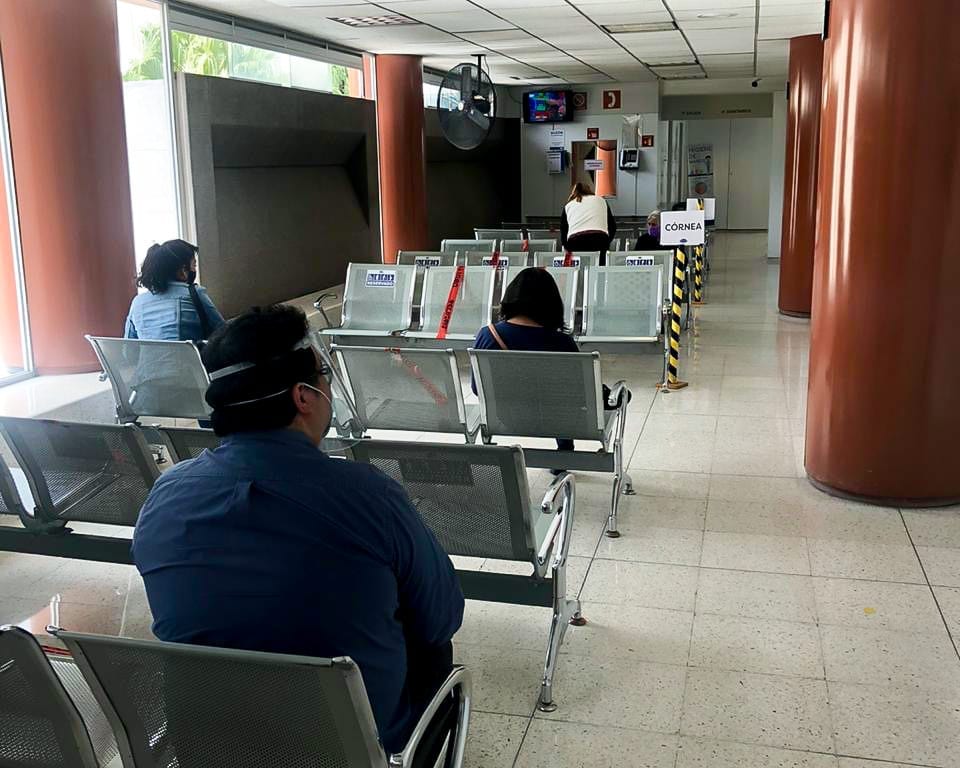Sear Scholarship Experience:
Dr. Eduardo José Polania Barón
June 2020
In times of COVID-19: An Insight from a Fellow in Ophthalmology
We all know the situation that is being experienced in the world in times of COVID-19; countries, cities, towns and individual households have undergone various changes.
Through different media, the details are shown and made known by each specialist in social, economic, administrative and health issues, they give their opinion every day on the subject of the pandemic.
There are areas of health, such as the training of doctors and specialists, which require both theoretical and practical knowledge, this in order to obtain excellent results reflecting well trained doctors, for the attention of the specialty in each country.
Since March of this year, all quarantine measures began to be taken in all countries. It is worth mentioning that this month is the beginning of the academic year for fellows and residents where I am doing my training.
It was a month of suspense, waiting, where patience plays a very important role, since I frequently asked myself questions such as: What will happen with patient care? What will happen with the academy? What will happen with us (fellows and residents)? What will happen with the program? What will happen with surgery?
These were big questions at the beginning for me and my colleagues, since all that month there was no other topic of conversation. We talked about it in the dining room between residents and fellows. We were in the hands of the administrative staff and the presidency of the Institute who had to guide us and make decisions based on the recommendations of the WHO, the guidelines of the CDC, as well as the leaders of the AAO and PAAO.
Through protocols and in order to enter the hospital we had to go through a screening (temperature, questions about symptoms and risk factors related to COVID-19). These were weeks in which the number of residents and fellows in the hospital was reduced by up to 25%, taking turns in days, some of them weeks.
It should be noted that patient care was focused on a system of telephone and face-to-face triage designed in a special area of the Institute. This obviously made a total change in the hospital, the operating rooms were only used for ophthalmic emergencies in each subspecialty.
Breakfast and lunch now in the dining room was desolate because it was empty, with no one to talk to; if you saw someone you knew you went over to say hello and then you remembered that you can’t even touch him (the hug and the kiss remain in the air). Now the routine of a fellow and a resident became a different routine (you run out because you’re late, you don’t come back except for the mask or the antibacterial gel or the box to keep the mask). Leaving the house implies adequate protection, going through the screening at the hospital, putting on all the protective equipment (sweating under that equipment, defogging the glasses, putting the mask on, even drinking coffee is complicated because of everything you have on). And then, you should think that if you take all that off, you will have to put it on again because it’s time to start your shift with the patients.
Yes, instruction at the institute and medical practice were reduced so much in the first days. Measures that had to be resolved somehow so residents and fellows could continue entering the, because after a time all classes that had been suspended had to resume virtually, allowing students to continue their theoretical learning with out compromising the academic objectives of the semester.
Additionally, surgery decreased to only attend to ophthalmic emergencies. But being an institute dedicated to ophthalmology and of national recognition in Mexico, there is a large number of emergencies for all specialties (cornea, retina, glaucoma, and oculoplastic, among others), which makes it possible to continue surgical training for the fellows, not the same amount of surgery, but it is a continuing education adapted to these moments of COVID-19.
What we are seeing little by little, each time the quarantine phases are over, is that we are returning to normal, resuming the service of scheduled surgeries, diagnostic tests for the comprehensive management of patients and why not say it, the desire to return soon to meet, hug and celebrate all those meetings that we have promised to make with friends and colleagues.
Eduardo José Polania Barón MD
Cartagena de Indias, Colombia
Recipient, 2020 Sear Scholarship
Cornea, External Diseases & Refrective Surgery Fellow, Instituto de Oftalmología Fundación Conde de Valenciana (Mexico)
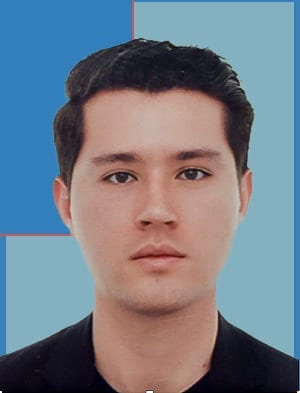
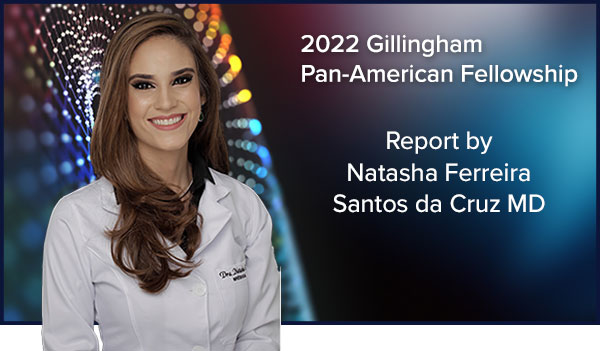
2022 Gillingham Pan-American Fellowship Experience: Natasha Cruz MD
We can’t stop learning. We need to continually pursue better education. And thank you to the Pan-American Ophthalmological Foundation for this award.

2021 Gillingham Pan-American Fellowship Experience: Mariana Matioli MD
We can’t stop learning. We need to continually pursue better education. And thank you to the Pan-American Ophthalmological Foundation for this award.

2019 Gillingham Pan-American Fellowship Experience: Paulina Liberman MD
I encourage young ophthalmologists to apply to the Gillingham fellowship. It is an amazing opportunity, and training in the US is a life-changing experience.
